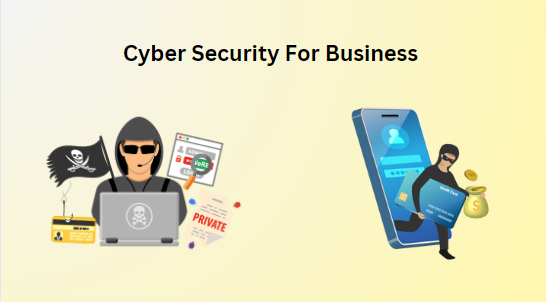
Cybersecurity Best Practices for Small Businesses: Via a Guide
Summary: The Internet enables businesses, regardless of size or location, to access broader markets and streamline operations through digital tools. Whether a company is considering cloud computing or simply email and a website, cybersecurity must be a fundamental component. On top of that, nowadays, cyber threats are a big problem even for small businesses.
So, we need a solution to safeguard the businesses. Therefore, the cybersecurity best practices for small businesses will help to secure critical data. Additionally, in October 2012, the FCC reintroduced the Small Biz Cyber Planner 2.0, an online tool assisting small businesses. Let’s start the article with the reasons why cyber security is so important.
Why Small Businesses Need to Prioritize Cybersecurity?
First of all, if we talk about cyber attacks, in this case, hackers play a vital role in it by gain access to the network. Moreover, they get the customer’s credit card information, product designs, and other type of critical information which can harm the company. Therefore, cybersecurity best practices for small businesses are necessary for such scenarios.
Here are some common cases in which we need cybersecurity tips for small businesses:
-
Your business may finish, because of security breaches, and you lose the trust of your customers.
-
Cyberattacks disrupt business operations causing downtime and loss of productivity, in this case, cybersecurity helps to maintain continuity.
-
Ransomware techniques are used by cybercriminals to lock the data and they demand money from the business owner to release the data.
-
When hackers, access the network they use high-quality software. Moreover, small businesses have to pay a large amount to address the data breaches.
-
It is essential to secure data for the expansion of a small business, and investment in cybersecurity ensures the business runs smoothly.
The Consequences of Cyberattacks on Small Businesses
Cyberattacks can have significant consequences for small businesses you need cybersecurity best practices for small businesses including:
-
When a cyber-attack situation happens, small businesses need to pay for enhanced cybersecurity.
-
It affects employee well-being and productivity.
-
The economic impact of banking information theft.
-
Financial consequences arising from business disruption.
-
Significant expenditures to eliminate network threats.
-
Reputation impairment resulting from customer data compromise disclosure.
Best Practices For Protecting Small Businesses
Small businesses feel helpless when they have to face cyberattacks. So, with the help of cybersecurity best practices for small businesses, we find the most reliable solutions for the same. Here are some efficient cybersecurity tips:
-
Need to make robust security plans.
-
It is essential to protect your payment gateway, to ensure your money is safe
-
Invest in cybersecurity culture.
-
Small businesses can use the firewall, to protect their both hardware and software. It offers to block viruses from entering your network.
-
Use can use a VPN, which allows users to access their networks from any area as it funneling your IP address through another secure connection.
-
Acquire the appropriate software that provides a comprehensive, all-encompassing solution. In addition, the optimal choice is to collaborate with SysTools For Managed Cybersecurity Services.
-
Don’t give access to the mobiles because it creates security challenges by holding critical information.
-
For robust security, use unique passwords for all devices.
-
You can get help from IT professionals to keep an eye on your competitors.
-
Small business owners can implement multifactor authentication and single sign-on.
-
Create a backup for your sensitive data, for any reason your data may lost. So, at that time you have a copy of your data to access.
Enhancing Security: Additional Layers for Robust Cybersecurity Measures
Nowadays, in organizations, work is done online, but this also increases the risk of cybercrime. So to avoid them you will have to make a cyber security strategy with the help of cybersecurity best practices for small businesses.
Here are several security steps to contemplate:
-
Companies need to organize cybersecurity training for their employees to make them aware of the security strategies.
-
If any small firm has security software, it is important to know that some of the time the software is not as reliable as expected. So, there is an alternative method that is more efficient which is vulnerability assessment and penetration testing.
-
If you thoroughly know about phishing, malware/ransomware attacks, and cyber espionage attacks, you can easily address the hacker. In addition, if you need to save your precious time you can contact the Security Operation Center and they can easily find the security breaches.
Bring it All Together
At present, there are certain risks to working online, not only for large enterprises but for small businesses and the threat is cybercrime. So, within this write-up, we learned cybersecurity best practices for small businesses and the reasons behind them.
Moreover, after discussing the threats in this article, we can suggest securing your crucial information with cybersecurity. On top of that, if you are not able to save your data, then you can contact an IT specialist to address the threat.


